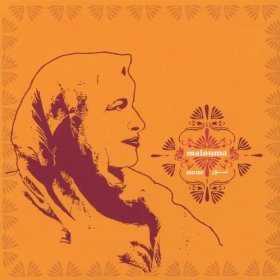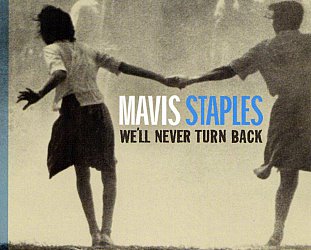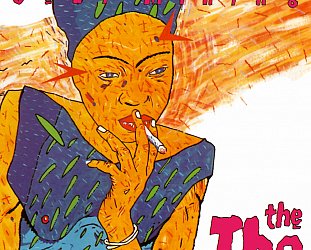Graham Reid | | 1 min read
Malouma: Nebine

The shrink-wrap that this exceptional album came in provided the clue: "blues woman mauritanienne, transcende les frontieres musicales".
And Amen -- or more correctly Allahu Akbar -- to all that.
Malouma wasn't "blues" in the same way that say Etran Finatawa or Tinariwen were on a first encounter around the same time. If you were desperately looking for a connection you might like to think of some parts of Robert Plant's more adventurous North African-influenced albums in recent years.
That's because Malouma has something akin to a "rock" band here with electric guitars and bass. None of the traditional Moor instruments were in evidence . . . but that just makes it an idel gatweay album to her more traditional albums.
But of course this music was still utterly grounded in her culture so it lopes along into seductive and seemingly endless, melodic lines, riding those hypnotic mictrotones, and aching with passion.
In places it sounds like it might have been produced by Brian Eno (those weird little sonic fills which sound like backwards guitars) and the whole things is so tangential that songs shift into different styles and colours at various points.
You never lose interest in any of this, it is quite a revelation.
Music from the border of Orient and Occident, and located right in the 21st century.
And by a remarkable woman who is an activist, politician and was decorated with the Legion of Honour by France.
.
This album can be heard on Spotify here.
.
These Essential Elsewhere pages deliberately point to albums which you might not have thought of, or have even heard . . .
But they might just open a door into a new kind of music, or an artist you didn't know of.
Or someone you may have thought was just plain boring.
But here is the way into a new/interesting/different music . . .
Jump in.
The deep end won't be out of your depth . . .







Gavin Hancock - Dec 8, 2011
Glad to have this and not merely because it covers Mauritania on my global music map! The rock instrumentation mentioned in Graham's review blend in so well you hardly notice them...as is typical with desert blues the sound produced by these instruments becomes "localised "due to the playing style of the musicians.
Savepost a comment